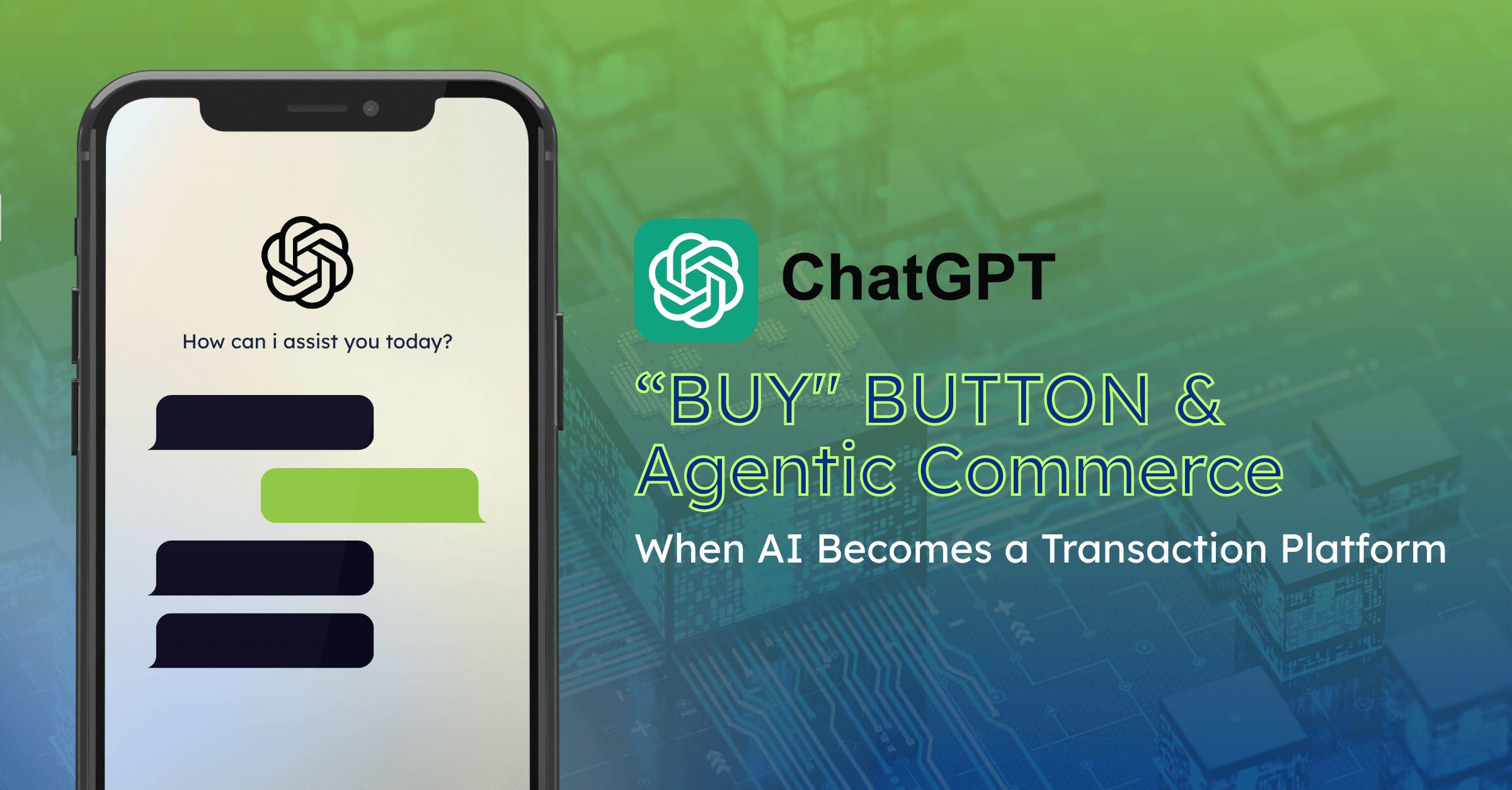OpenAI has announced two significant innovations: Instant Checkout – a “Buy” button embedded directly in ChatGPT, and the Agentic Commerce Protocol (ACP) – an open standard that allows AI agents to execute transactions seamlessly without leaving the chat interface (VentureBeat, 2025).
This is more than just a feature update—it represents a strategic inflection point. AI is evolving from a supporting assistant into a transactional actor, capable of completing commerce flows on behalf of users.
This article analyzes the implications of this shift, the global opportunities and risks, and how this trend signals the emergence of AI-native commerce worldwide.
Instant Checkout – Direct Purchases Inside ChatGPT
- Users can issue prompts like “gifts for a ceramics lover” or “running shoes under $100”, and ChatGPT will display a Buy button if the product supports Instant Checkout.
- The entire purchase happens inside ChatGPT—confirmation of shipping details and payment—without redirection to an external site.
- Initially available for select Etsy (U.S.) stores, the feature will soon expand to Shopify merchants and beyond.
- OpenAI plans to introduce multi-product carts and broader international support in the future (VentureBeat).
Agentic Commerce Protocol (ACP) – Open Standard with Stripe
- ACP is an open-source protocol designed to enable seamless communication between AI agents, users, and merchants.
- Key advantage: merchants do not need to overhaul their infrastructure to adopt ACP; integration is designed to be lightweight.
- Developed in collaboration with Stripe, ACP ensures security, transparency, and user control in every transaction.
- Its safeguards include:
- Explicit step-by-step user confirmations before completing a purchase.
- Encrypted payment tokens with restricted permissions (usable only by approved merchants).
- Sharing only the minimum required data to finalize a transaction.
ACP vs. Google AP2
Google is also moving in the same direction with its Agent Payments Protocol (AP2):
- AP2 focuses on cryptographic mandates that validate whether an AI agent is authorized to transact on a user’s behalf.
- ACP prioritizes practical integration speed and real-world applicability for merchants.
- Despite their differences, both ACP and AP2 aim to establish standards for AI-powered financial transactions (VentureBeat).
Security, Privacy & Transaction Control
- OpenAI emphasizes that users must confirm each step of a transaction.
- Payment tokens are encrypted and limited in scope, reducing the risk of misuse.
- Merchants remain responsible for order fulfillment, returns, and customer support.
- This approach embodies “trust by design”—ensuring user confidence through security and transparency.
Global Opportunities & Challenges
Opportunities
- Redefining e-commerce models: AI agents can evolve from recommendation engines into active commerce platforms.
- Massive market potential: with millions of Shopify merchants, the expansion possibilities are enormous.
- Consumer behavior alignment: in regions like Asia, chat-based commerce is already mainstream (WeChat, WhatsApp, Messenger Commerce). Instant Checkout and ACP fit seamlessly into this trend.
- AI-native e-commerce: enterprises can deploy AI agents as virtual sales representatives—always on, always responsive.
Challenges
- Geographic limitations: currently U.S.-only; global expansion requires solving regulatory, payment, and compliance issues.
- Security & fraud risks: safeguarding personal data, authenticating transactions, and mitigating cyberattacks remain critical.
- Vendor lock-in: merchants risk dependency on ACP/OpenAI unless broader global standards emerge.
- Consumer trust: widespread adoption hinges on whether users are ready to let AI agents handle financial transactions directly.
The launch of ChatGPT’s Buy Button and Agentic Commerce Protocol demonstrates a clear trajectory: AI is moving from an operational assistant into a core commerce infrastructure.
This presents both a strategic opportunity for enterprises to unlock new digital sales channels, and a critical challenge in building trust, security, and compliance at scale.
At DEHA GLOBAL, we help enterprises embrace this new frontier through AI Agents Development, Cloud-native architectures, and compliance-first governance.
Contact us today to design your AI-native commerce strategy—secure, scalable, and ROI-driven.
